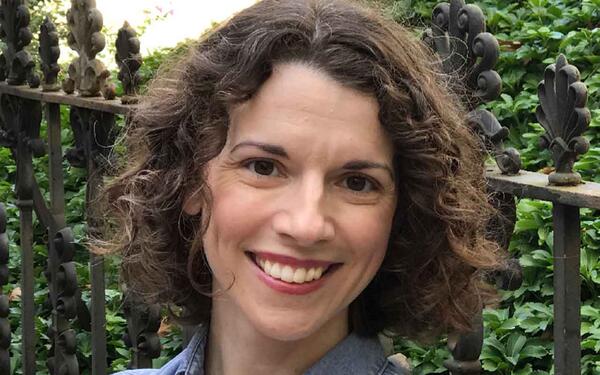You have /5 articles left.
Sign up for a free account or log in.
I’ve known about Jessica Metzler’s work through her roles at Brown University and Minerva Project. When I saw on LinkedIn that Jessica is starting a new gig as director of online learning at Providence College, I thought the timing was right for a Q&A.

Q: Tell us about your new role at Providence College. What attracted you to the position? What is Providence College currently doing with online learning, and what are your big goals for the university?
A: In my new role, I’m looking forward to expanding and enhancing the college’s distance education programs. This is a tremendously exciting opportunity—to be able to help shape the future of online and hybrid learning and work in a formative capacity on new programs from the ground up. Currently, Providence College has limited online offerings, so there is a lot of potential for growth. As a campus community, we’re having conversations about how to grow responsibly online in ways that are aligned with our mission and values.
For example, some guiding questions for us are: How do we maintain not just the quality of our traditional in-person courses, but also ensure online programs reflect the culture and values of a Providence College education? What will distinguish a student who takes an online Providence College course from one who takes online offerings from another institution? How best can we translate a strong, in-person, faith-based liberal arts tradition into online communities and connections?
So, a big goal for me is articulating this distinctiveness—demonstrating how an online Providence College course or program will deliver not just quality content, but a learning experience that is unique to Providence College.
Q: Let’s discuss your educational and career path. You have a Ph.D. in English from Cornell and have held various teaching, learning and leadership roles at multiple organizations and institutions. What factors led to your decision to pursue a nontraditional/alternative academic career? What advice might you have for other traditionally trained academics wanting to follow a similar career path?
A: Stepping away from a traditional, linear academic career path requires becoming comfortable with the different ways a career can be shaped. For me, a spiral career path has been the most satisfying. This is the idea that you grow specific skills or competencies in one position and then move to a related but broader position where you use those skills while gaining new ones. Then you do the same thing with the next position—transfer some skills to a wider context, gain new ones.
For example, in my work in teaching centers at Cornell and Brown, I used the classroom teaching skills I had gained in graduate school and as a university lecturer, but in the broader context of faculty development at the institutional level. When I moved to Minerva Project, an educational innovation company with a focus on educational technology and consulting, I used my skills in teaching and faculty development in the broader context of online learning and strategy development across multiple institutions. In my role at Providence College, I will apply my skills in online program development to grow distance education programs in the context of a faith-based liberal arts college.
This type of career progression is less about following a set path and more about taking advantage of opportunities when and where they present themselves. It requires thinking creatively about how to apply the skills you have and not being afraid to try new things in new contexts. This approach to work has allowed me to follow my personal values and interests, and it is an approach I think a lot of traditionally trained academics can find very satisfying when they transition to different careers.
Q: These are challenging times for higher education. What role can online and digital learning play in ensuring that our colleges and universities are resilient and that our institutions are viewed as positive contributors to the communities and locales in which we are situated?
A: I think online and digital learning absolutely has a role to play in institutional resiliency. Distance education can expand the reach of colleges and universities to serve learners outside the traditional bounds of a residential student population. For example, learners who are geographically located far from a college campus, who work during the day, who have child or eldercare responsibilities, who are returning to school after spending time in the workplace or as a caregiver, all experience barriers to accessing postsecondary and graduate education.
With online learning, we are able to reach the types of learners for whom a traditional educational path might not be feasible. Education is opportunity. Making education accessible in ways it historically has not been is a big factor in ensuring institutions are viewed positively—as a net good for individuals and their communities.
When we think about location, online learning programs really have two—a physical campus most faculty may teach and live near, and students’ physical location, which might be very far away from campus. So, online programs have the ability to impact both a local institutional community and students’ home communities. For example, in a course with a strong experiential learning component, students engage and collaborate with their local communities in the process of their learning. This knowledge comes back to the institutional community through the virtual class, but it also stays in the students’ communities through the development of a broader worldview or by meeting community needs. This geographical reach is a good thing. Institutional communities become bigger, more diverse and more resilient.




